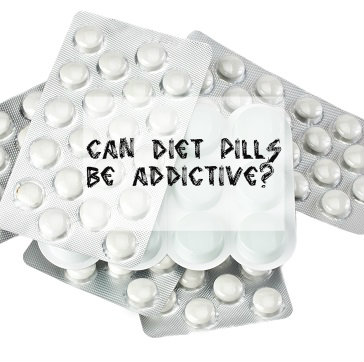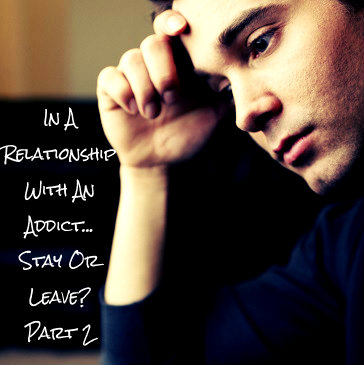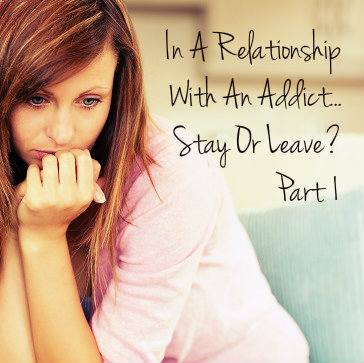The struggle of a spouse coping with an addicted partner is one that is often discussed, written about and addressed as an important element of addiction treatment. What we don’t hear about as often are the cases in which both partners in a marriage are battling addiction. For a spouse who has never had an addiction, watching her loved one struggle and trying to lend support and love is an extreme challenge. If both people are addicted, it magnifies the problem. How do you support each other when you are each battling your own addiction demons and trying to stay clean?
Should I Get Addiction Treatment With My Spouse?
 The most important decision you both need to make is to each get help. How you do that and what resources you use to get help are less important than taking that first step. Once you have both agreed that you need the care of addiction professionals, you are ready to face the rest of your journey. The next question to be answered is whether you go it alone or try to go through rehab together.
The most important decision you both need to make is to each get help. How you do that and what resources you use to get help are less important than taking that first step. Once you have both agreed that you need the care of addiction professionals, you are ready to face the rest of your journey. The next question to be answered is whether you go it alone or try to go through rehab together.
The good news is that you have options. Addiction treatment has advanced tremendously over the last couple of decades. There are many more ways in which you can get care, and if you want to, you can do it together. One benefit of working together is that you both stand a better chance of being on the same page if you receive the same program of treatment from the same professionals. Different treatment programs adhere to different philosophies and when you both work with the same one, you will understand each other better. Working together will also give you the opportunity to address your relationship issues as well as your addictions.
One philosophy of addiction treatment says that you should be solely focused on yourself. If you work together on your treatment, you may fall into bad relationship habits and fail to devote yourself entirely to your own healing process. Discuss your options together and consider asking the opinions of addiction professionals as well. You can always change your plan if working together or apart does not go as you hoped it would.
What If My Spouse Won’t Commit To Treatment?
As long as you both are committed to getting treatment for your individual problems, your relationship stands a chance of surviving your addictions. What happens if one of you refuses treatment or won’t follow through with it? This situation can be incredibly difficult for both partners. If you are moving forward and your spouse is falling behind, you have a major problem. Staying together means that your spouse could drag you back into addiction. If you separate, it could mean that your spouse falls into an even deeper hole.
The ultimate decision as to how to handle a spouse who won’t join you on your journey to sobriety is personal. Only you can decide what is right for you and your relationship, but know that you likely won’t last long if one of you is abusing drugs or alcohol while the other is in recovery. It’s a volatile situation that is bound to blow up. If your spouse refuses to get help, do everything in your power to encourage him or her do so so. If you can’t, it may be time to move on. It will feel like a terrible abandonment, but you can only change yourself. Your transformation into a healthy and sober person may even be the push needed to get your spouse to follow suit.
You And Your Spouse Are Worth It – Give Us A Call Now To Begin The Healing!
30 Jun 2014
Does Addiction Need To Lead To Divorce?
Addiction can wreak complete havoc on a marriage. The addict partner may neglect or even abuse his or her spouse, drain the family’s finances, and be completely unavailable to any family member. The resulting feelings in the non-addicted spouse often include depression, resentment, anger, and even outright hatred. It seems inevitable that these marriages are headed for divorce, but when both partners make a commitment to work through the issues, that outcome can be avoided.
How Can The Addict Turn Things Around?
 If you are the addict and you want to save your life and your marriage, the first and most important thing you can do is to get treatment for your addiction. Commit to your treatment plan and work hard to get sober and stay sober. This step is a powerful statement to your spouse about your intentions. Actions always speak louder than words; if you have promised your spouse again and again that you would get help but didn’t follow through, only action will save you now.
If you are the addict and you want to save your life and your marriage, the first and most important thing you can do is to get treatment for your addiction. Commit to your treatment plan and work hard to get sober and stay sober. This step is a powerful statement to your spouse about your intentions. Actions always speak louder than words; if you have promised your spouse again and again that you would get help but didn’t follow through, only action will save you now.
In spite of making the move to get help and make things better, some marriages fall apart once the addicted spouse enters recovery. Seeking addiction treatment means more time that you need to focus on yourself and your recovery to the neglect of others. As you go into rehab, talk to your spouse and explain that you will need to be self-involved for a little bit longer, and that it is necessary in order for you to get well again. Ask for patience and time. Involving your spouse in the process to some extent can be helpful for your marriage. Consider including some therapy sessions with the both of you so you can start working on rebuilding your relationship as you learn to be sober.
How Can A Spouse Forgive?
If you are the non-addict, forgiveness and repairing your relationship with your spouse may seem impossible. You have been hurt and ignored, time and time again, but as long as your spouse is seeking treatment, there is hope. Start on the path to forgiveness by learning more about addiction. The more you understand the disease, the more likely you will be to develop some compassion for your spouse.
It may also be helpful for you to seek some counseling. See a therapist who specializes in helping people who have been hurt by addicts. Also consider joining a support group for the loved ones of addicts. You can learn a lot from the experiences of others who have been in your position. The support and camaraderie can also be a powerful tool for healing. Once you have taken the time to work on yourself, be prepared to forgive and to get involved in your spouse’s treatment. Your marriage cannot move forward if you still harbor grudges and resentments.
What if Divorce Is The Best Option?
Despite your best efforts your marriage may be headed for failure. How do you know if divorce is your best option? If you are the recovering addict, no matter how much you try, your spouse may not be able to forgive you or get past the damage you have caused. If you are the injured party, you may try everything to get your spouse to stay clean, but you see failure again and again. If you can’t live with your spouse anymore, you may need to follow through with a divorce. Even if you do split up, keeping up with therapy for both spouses is crucial. You have both been damaged and you both need healing, no matter what happens to your marriage.
If You Or Your Spouse Is Struggling With An Addiction – Call Us Now – We Are Here To Help!
25 Jun 2014
Are You Addicted To Tanning?
Tanning addiction is an example of what experts term a process or behavioral addiction. Unlike drug or alcohol addiction, there is no substance consumed; yet many of the symptoms overlap. Going for a tan, whether at a salon with artificially produced light or at the beach and under the sun, poses many risks, not least of which is skin cancer. Getting a little sun is healthy, but becoming obsessive about getting that golden glow could prove fatal.
What Is Tanning Addiction?
 A process addiction is one that involves a behavior rather than a substance. People can become addicted to gambling, shopping, sex or even getting a tan. Research indicates that tanning addiction is a real phenomenon and one that mostly impacts younger women. What happens when you tan that can lead to an addiction is the same thing that happens when someone takes a hit of a drug, or wins at the blackjack table: you feel good.
A process addiction is one that involves a behavior rather than a substance. People can become addicted to gambling, shopping, sex or even getting a tan. Research indicates that tanning addiction is a real phenomenon and one that mostly impacts younger women. What happens when you tan that can lead to an addiction is the same thing that happens when someone takes a hit of a drug, or wins at the blackjack table: you feel good.
Exposure to both sunlight and the artificial light of a tanning bed produces a pleasurable release of endorphins in the body. Until it becomes uncomfortably hot, being out in the sun simply feels good. It’s also a powerful mood booster. As with substance abuse, some people are susceptible to abusing the feel-good sensation of tanning. They seek out the good feeling, as well as what they perceive to be an attractive tan, over and over again. Research shows that people addicted to tanning experience many of the same physical and psychological symptoms as alcoholics and drug addicts.
How Do I Know If I’m Addicted To Tanning?
A good way to check if you might be addicted to tanning is to look at those symptoms and signs of addiction that are common to both chemical and behavioral addictions. One of the first signs of an addiction of any kind is tolerance. This means that you need to spend more and more time under the tanning lights in order to get the pleasurable feeling you are seeking. For example, you may have started out tanning once a week, but then climbed to two or three times a week and then every day.
Another important sign of addiction is withdrawal. When you have to skip a tanning session for any reason, do you feel anxious or upset? If so, your body and mind are experiencing withdrawal from your “drug.” Other symptoms of addiction include obsessive thoughts and actions. Are you constantly thinking about getting your next fix? Has your life begun to revolve around tanning? Addiction also causes you to neglect your other activities. Have you let your work or academics slide? Are your relationships suffering? If you recognize these signs in yourself, you may have a problem.
What Are The Risks Of Tanning Too Much?
Over-tanning is very dangerous. The risk of addiction is serious because it can impact your life in many negative ways even though you are not a drug user or drinker. The bigger danger, however, is the effect of the tanning on your skin and your health. Melanoma, a type of skin cancer, is the deadliest form of cancer in the U.S. and the number one most preventable factor in developing it is the use of tanning beds.
If you feel that you have a problem with tanning, cut back or stop altogether. If you find that you can’t, turn to an addiction counselor experienced in working with process addictions. With the help of a professional you can kick the habit, and in doing so you just might save your life.
14 Mar 2014
Can Diet Pills Be Addictive?
Taking diet pills to supplement weight loss can be beneficial for some people, but risky for others. If you are worried about someone you love who is taking diet pills, learn more about them and what to do to help. The Food and Drug Administration (FDA) has approved very few medications for assisting with weight loss. Many over-the-counter remedies are supplements and are not regulated. Understand the dangers and side effects that come with taking these diet aids and confront your loved one if you are worried about her health and wellbeing.
How Do Diet Pills Work?
Different diet supplements work in different ways. Most are supposed to suppress your appetite and supplements that make this claim may include green tea extract, chromium, drugs called catecholamines, or an herb called hoodia. How effective these are is uncertain.
Types Of Diet Pills
 One prescription drug that works as an appetite suppressant is called phentemine.
One prescription drug that works as an appetite suppressant is called phentemine.
Another FDA-approved medication, which is available without a prescription, is called Alli. It aids in weight loss by blocking the body’s absorption of dietary fat. Other supplements claim to be able to block fat, but have not been evaluated by the FDA. They include ingredients like chitosan and guar gum.
The third and most dangerous type of diet drug includes stimulants. Stimulants are drugs that boost your metabolism causing you to burn more calories. Controversial pills, such as those that have ephedra as an ingredient, are often stimulants. Bitter orange is another herb you might see as an ingredient in a stimulant diet pill. Amphetamine, which is a prescription drug used to treat ADHD and narcolepsy, is often abused by people trying to lose weight because it is a powerful stimulant.
Are Diet Pills Addictive?
Most of the ingredients found in diet pills are not chemically addictive. In other words, unlike addictive drugs, they do not cause physiological changes to the brain that can lead to dependence. Stimulant drugs are an exception, especially amphetamine. Anyone abusing amphetamine to lose weight is putting herself at risk for addiction.
While most of the diet pill ingredients are not addictive, there is always the possibility of a psychological dependence on these medications. If someone you love is taking any type of diet pill more often than seems normal and is obsessing over her weight, she may have a type of addiction. She may also have an eating disorder or be on the path to developing one. It is important to intervene before she goes too far and really puts her health at risk.
What Are The Side Effects Of Taking Diet Pills?
There are plenty of potential side effects from all types of diet pills. Some are just uncomfortable, but others are dangerous. The riskiest side effects come from stimulants because they cause an increase in heart rate and blood pressure. When combined with alcohol, stimulants are especially dangerous. Other less serious side effects include headache, diarrhea, nausea, gas, constipation, insomnia and upset stomach.
How Can I Help If I Know Someone Who Is Overusing/Misusing Diet Pills?
If you know someone who is taking risks with diet pills, step in and express your concern. Educate your friend about the dangers of these pills, especially if she is taking stimulants. Encourage her to seek professional therapy so that she can learn how to have a healthy attitude toward her weight and her body. The best way to lose weight is through diet and exercise, so offer to be her partner in making good food choices and in working out.
Read More About Prescription Stimulant Abuse In Moms…And The Dangers
We all have those voices in our heads—the critic, the tempter, the downer, the voices telling us we’ve never been anything and we shouldn’t even try. But in order to want sobriety and progress in recovery, we need to learn to silence the voices of opposition. But how do you get past the voices in your head that keep you in dysfunctional and destructive patterns?
Identify The Negative Voices
 It helps to begin by identifying the messages flying around in your head. Whose voice is the one that you hear most strongly and loudly in your mind? Who is the one, though you are an adult, who is still criticizing you and tearing you down and insisting you conform to his or her way of life, dysfunctional as it may be? Listen to what you hear when you think you need to take a drink or get high. Who or what is controlling you without your permission?
It helps to begin by identifying the messages flying around in your head. Whose voice is the one that you hear most strongly and loudly in your mind? Who is the one, though you are an adult, who is still criticizing you and tearing you down and insisting you conform to his or her way of life, dysfunctional as it may be? Listen to what you hear when you think you need to take a drink or get high. Who or what is controlling you without your permission?
Parents’ voices ring in our ears though they may be long dead. Through their words and actions they imposed their view of the world, relationships and love when we were in our youngest and most impressionable and vulnerable stages of life. We took that input at face value. We didn’t question if it was right or wrong or sane. And today, as adults, many of us are still living our lives guided by those dysfunctional, damaging beliefs.
Or maybe it was a harsh coach or teacher or a relentless sibling or school bully. Without realizing it we are still hearing these critical and insulting voices in our heads. We are still subconsciously dominated by the people whose opinion we may not even respect and whose approval we no longer covet. We need to begin to set ourselves free of these mental tyrants.
How To Let Go And Live For Ourselves
How do we learn to let go of others’ perceptions of the world? How do we live for ourselves rather than for the whims of some undefined them? We do it by beginning to intentionally perceive our own world. How do we think about things? What do we think we are capable of, regardless of what others have told us? What do we want out of life? What are the things we believe are most worth living for and pursuing? As an adult, you have the freedom to make your own decisions, have your own opinions and live in a way that is pleasing and healthy for you. What does that look like?
One woman, in a loving relationship with a man, was afraid to express her needs or her emotions for fear of being a burden. Her partner, however, didn’t view her emotions as anything other than valid and worthy of consideration and discussion. Still she feared being the “difficult woman” because of how her father viewed women and their needs and the way he conceptualized their motives as self-serving. But this experience was her father’s, not a universal truth about women and men.
As she grew up and desired to have a healthy and functional romantic relationship, she realized that she would need to put her father’s perceptions and prejudices about the world and relationships out of her mind in order to experience the world and her life as her own. Her father’s experience was not hers; she was not a demanding woman or self-serving. She did, however have emotions and needs that her partner was healthy enough to want to honor. She learned that not all women were self-serving or demanding and that not all men viewed them that way.
Evaluate What’s Helpful And What’s Not
As we progress through life and we see our frequent hang-ups, and the beliefs that don’t serve us, we have to begin to ask whose voice it is that we are hearing. Who is motivating the feelings of fear and apprehension we feel? Is it a parent telling you that you’ll never have what it takes? Or that you have never been good enough? Is it a competitive sibling making fun of your interests and talents? Is it a judgmental “friend” who was only trying to give you some helpful advice?
It is time to begin to evaluate that which is not helpful and then to let it go so that you may live free—free to determine your own life, free to recover and free to recognize and realize your own potential. How many of us drank or practiced our addictions because we couldn’t stand ourselves and needed an escape from our own reality? Or because we didn’t believe ourselves worthy of much better than playing out our lives as drunks and just getting by? Identifying the negative voices supporting those damaging beliefs can help us to see that we have been living a lie and are indeed worthy of so much more.
How Therapy Can Help
These life-controlling beliefs are deeply ingrained and they are hard to overcome—in many cases therapy may even be helpful in figuring out where the roots lie. Between our 12-step work and therapy, we gain the tools to uproot those old beliefs and toss them onto the compost pile. Your mind is your own; don’t give it over to the voices that only seek to tear you down. Live the victorious life that was meant for you.
Read More About Hope In Recovery
You probably have a picture in your mind when you hear the word alcoholic: an older man—ragged clothing, penniless, maybe homeless. We all have our prejudices about addicts, drug abusers, and people who drink too much. The truth is, however, that someone who drinks too much could be just about anyone.
Sometimes that person who is headed down the path to alcoholism doesn’t appear at first glance to have a problem. It might be someone who is well off and has a great job. It could be a young woman. It could be a mom or a wife. Alcoholism is not restricted to the stereotype, and more women are drinking now than ever before.
If you suspect at all that your mom or the mother of your children is drinking more than is normal, or if you suspect it in yourself, take note. Know the signs of early drinking problems as well as the effects of alcoholism in women and step in to help, or get help, before it goes too far.
Has Drinking Become A Secret Habit?
 For women who are home all day, with or without the kids, drinking in secret is a real possibility. She can have a glass of wine with lunch—or two or three—sober up when it’s time to pick up the kids, and no one is the wiser. If you are the secret drinker, that fact in itself indicates a problem. Hiding a habit is always an early sign of problem drinking. So how can you tell if your spouse is hiding this habit from you? Look for the leftovers. If wine disappears from the fridge or you find stashed liquor bottles around the house or in the recycling bin, something is amiss.
For women who are home all day, with or without the kids, drinking in secret is a real possibility. She can have a glass of wine with lunch—or two or three—sober up when it’s time to pick up the kids, and no one is the wiser. If you are the secret drinker, that fact in itself indicates a problem. Hiding a habit is always an early sign of problem drinking. So how can you tell if your spouse is hiding this habit from you? Look for the leftovers. If wine disappears from the fridge or you find stashed liquor bottles around the house or in the recycling bin, something is amiss.
Is Drinking Getting In The Way Of Responsibilities?
A classic sign of a drinking problem, or any substance abuse problem, is that it interferes with daily life. If your work-at-home or stay-at-home mom or wife is slacking on her usual responsibilities, something could be up. Maybe the laundry is piling up more than usual, or the house is not as clean as it used to be. Perhaps the kids get picked up late one time too often. If there are valid reasons for these slips, such as new or added responsibilities, that’s one thing; if you can’t see any reasonable explanation and you suspect drinking, you could be right.
Can She Have Just One Drink?
How do evenings look in your home? Does your spouse have one glass of wine with dinner or does she struggle to limit herself? The compulsion to drink more and more is a clear sign of a problem. If she constantly says she will have just the one, but always stretches that to two or more drinks, she is on a dangerous path. When you try to limit your drinking, but can’t do it, you are on the road to problem drinking.
Is She Defensive When You Talk About Drinking?
Someone who is drinking too much, but is in denial about it, is likely to get defensive when you try to have a discussion with her. Bring it up and open the way for a talk. If she acts unreasonably defensive and gets angry if you try to suggest she curb her drinking, there may be a problem. Problem drinkers will naturally have a hard time admitting this fault, but she needs your help. Press the issue and point to the signs that demonstrate a problem. Ignoring it will not make it go away, and eventually someone will get hurt.
If you or someone you love needs help with alcohol or drug addiction, contact us now at 855-763-6488 and let us help you start a life of recovery and freedom!
Read More On How To Know If I’m Enabling The Addict In My Life
Continued From – In A Relationship With An Addict: Stay Or Leave? Part 1
Addressing Codependency Within Yourself
If, through Al-Anon or CODA, you have identified codependent tendencies, it is time to seek help for that problem specifically. A relationship with an addict is never healthy, but neither is a relationship with a codependent. Codependency is a pattern that mimics addiction. If you hope to have healthy, functional relationships in the future, it is imperative that you begin working through this condition.
Ending a cycle of co-dependency is not easy and professional help may be required, as these patterns are usually deeply ingrained and rooted in childhood experience. Learning new, healthy patterns for relationships is not automatic and needs to be addressed intentionally.
Learning To Recognize The Deception And Manipulation Of Your Addict Partner
 How many times has your addict partner blamed you for his or her problems? Or, when you confronted your partner about the addiction, the focus was shifted to you, claiming that if only you were more this or less that, the addicts wouldn’t drink or use in this way? What about all of the excuses of an addict?
How many times has your addict partner blamed you for his or her problems? Or, when you confronted your partner about the addiction, the focus was shifted to you, claiming that if only you were more this or less that, the addicts wouldn’t drink or use in this way? What about all of the excuses of an addict?
Your partner’s addiction is, in no way, related to you or your perceived failings as a partner. Addicts are masters of deception, blame-shifting, excuse-making, and manipulation. Are you falling for it? Do you believe the addict even when you suspect he or she is lying? Do you fail to acknowledge red flags? Part of codependency is smoothing over issues or matters that may cause a fight but should be addressed. Are you allowing yourself to be manipulated?
Recovery May Not Be The Answer For The Relationship
As the non-addict partner, your focus has been on the addict—their needs, their issues, their failings, their protection, and their need to get into recovery. And sometimes the addict does actually pursue recovery, get sober, and join a 12-step community. It seems like this would be the ideal situation.
Not necessarily. Indeed, recovery is always the answer for the addict. There is never a time when it is better to stay in addiction than to get into recovery. But recovery may not be the “answer” for your relationship. The combination of an addict (them) and a non-addict/potentially co-dependent (you) creates a certain relational pattern that, while perhaps not ideal, is familiar. The addict is accustomed to being the screw-up or the authoritarian, and the non-addict is slotted into the role of caregiver, protector and hero.
Recovery changes that. Suddenly the sober addict is bringing a new dynamic to the relationship—taking ownership of their faults, attempting to set proper boundaries, devoting time to recovery and a 12-step community, and seeking the direction of a higher power. This can leave the non-addict in a quandary, not knowing how to act or respond to the sober partner, and not appreciating the shift in roles. Co-dependents get their fix from being rescuers, enablers and controllers. When they are relieved of that role, conflict often results.
Breaking Up With An Addict
A relationship with an addict can never be anything less than toxic. If you are dating rather than married to an addict, the ease with which you can leave the relationship is greater. In the case of marriage where children and a shared home may be involved, other tactics and attempts at recovery should be employed before declaring the marriage over.
For those who are in a dating relationship, the ties with an addict are somewhat easier to sever. While a breakup is always painful, you won’t have the added challenge of a legal battle. The hassle of splitting up possessions or finding a new place to live should not be a deterrent. Freedom and healing is worth that price.
If you fear that your attempts to leave the relationship will be met with violence or other maliciousness, it is wise to involve law enforcement, obtaining a restraining order if necessary. It is also helpful to have the names and phone numbers of shelters in your area where you could stay anonymously for a period of time if necessary.
Listening To Wisdom Of Others And Making A Healthy Decision For Yourself
While the opinions and advice of others need not dictate your life and the decisions you make regarding your relationship, it is often wise to listen to people around you. If your family and close friends are consistently encouraging you to send your partner packing, you may want to take heed. Think they don’t know him like you do, or that they just can’t see the real her? You may be right, but at some point you may need to ask yourself if you are the one who is not seeing the situation in all of its reality.
Whether you decide to stay or leave, you are seeing that not all problems in your relationship are the addict’s. You are gaining awareness of your own faults and perhaps your unrealistic expectations. Only you can decide if this relationship is right for you, but you are gaining the knowledge and understanding to help you make an informed and healthy decision.
Read More About How To Handle A Loved One With An Addiction
You know your partner battles an addiction and you’ve seen the toll it is taking on your relationship, not to mention your own well-being and sanity. Yet you stay. And the problem continues. How do you recognize an addict’s excuses? Is it possible to have a healthy relationship with an addict? Should you even try? How do you decide when it’s time to call it quits?
Unhealthy Attracts Unhealthy In Relationships
 It helps to begin with a little soul searching. What keeps you in a relationship with an addict in the first place? The reality is that people who maintain relationships with addicts are often operating from a place of co-dependency and emotional neediness. Whether or not you stay in the relationship, it is probably time to start looking at some of your own issues.
It helps to begin with a little soul searching. What keeps you in a relationship with an addict in the first place? The reality is that people who maintain relationships with addicts are often operating from a place of co-dependency and emotional neediness. Whether or not you stay in the relationship, it is probably time to start looking at some of your own issues.
It is easy to make the relationship about the other person and his or her addiction and to be constantly focused on catering to the needs of the one who seems to be the “problem.” As a result, the non-addict doesn’t see the need to work on him or herself. In normal relationships, each partner is growing and changing in partnership with the other. In the case of a relationship with an addict, however, this normal growth and progression stagnates—often for both partners.
Examine Your Motives When In A Relationship With An Addict
People in relationships with addicts often avoid trying to honestly discover why they are in the relationship in the first place. No one can tell you it is time to end the relationship, but you might ask yourself why you think you want, or need, to stay.
Questions To Help You Work Through The Feelings Of Continuing Or Ending The Relationship With An Addict
- Are you afraid of being alone?
- Are you afraid you can’t find anyone better than your current partner?
- Do you believe that you can change him/her?
- Do you think you can love him/her out of the addiction and into a clean life?
- Do you optimistically believe that somehow things will just work out, even though there had been no evidence of that?
- Do you tell yourself it’s not that bad?
- Are you afraid of drastic consequences if you leave the addict? Has he or she threatened harm to self, you, or others if you end the relationship?
- Are you avoiding the hassle? Are you too lazy to make the break and deal with the consequences of splitting possessions and potentially having to find another place to live?
- Are you afraid to discuss the problems in your relationship or your desire to leave for fear of starting a fight? Are you afraid of physical abuse?
- Is the addict working to convince you there isn’t a problem, but maybe your gut is telling you differently?
- Has the addict vowed to go to AA, but failed to follow through?
- Do you think the addict can’t make it on his own without you?
- Are you afraid to present an ultimatum?
More “yes” answers than “no” suggest strong co-dependent tendencies.
Work On You And Your Own Issues
Any time spent in a relationship with an addict can be crazy-making. It is time to start working on you. Seeking your own recovery can often help you to better decide whether you should try to keep the relationship going or end it.
Start by attending an Al-Anon meeting in your area. Al-Anon can help you to better understand addictive patterns and tendencies and give you the tools and support for working with them. You will learn about yourself, and why you stay with an addict, and how to set better boundaries if you do stay in the relationship.
Co-Dependents Anonymous (CODA) is another group worth seeking out. Partners of addicts commonly suffer from codependent tendencies. A group like CODA takes the focus off of healing the addict and puts it onto healing and discovering you.
Whether or not you choose to stay with the addict, and whether or not he or she will get help, you need help and support in dealing with the addiction, and eventually healing from it.
People who have been brainwashed by a relationship with an addict often repeat unhealthy relational patterns in subsequent relationships. Attending Al-Anon can help the non-addict partner learn the realities of addiction and co-dependence, and can be an eye-opening experience of personal growth and development.
Hitting Bottom In The Relationship
As you wait for the addict to hit bottom and reach his or her limits, you might think about your own limits. What does it mean for you to hit bottom in this dysfunctional relationship? Partners of addicts become accustomed to responding to the needs of the addict without considering their own personal needs and preferences. In order to be ready to leave the relationship, you will have to hit your own bottom—the place of complete despair and desperation. It is at this point that you will be ready for a change. Have you hit bottom in your relationship with the addict?
Continued In – In A Relationship With An Addict: Stay Or Leave? Part 2


